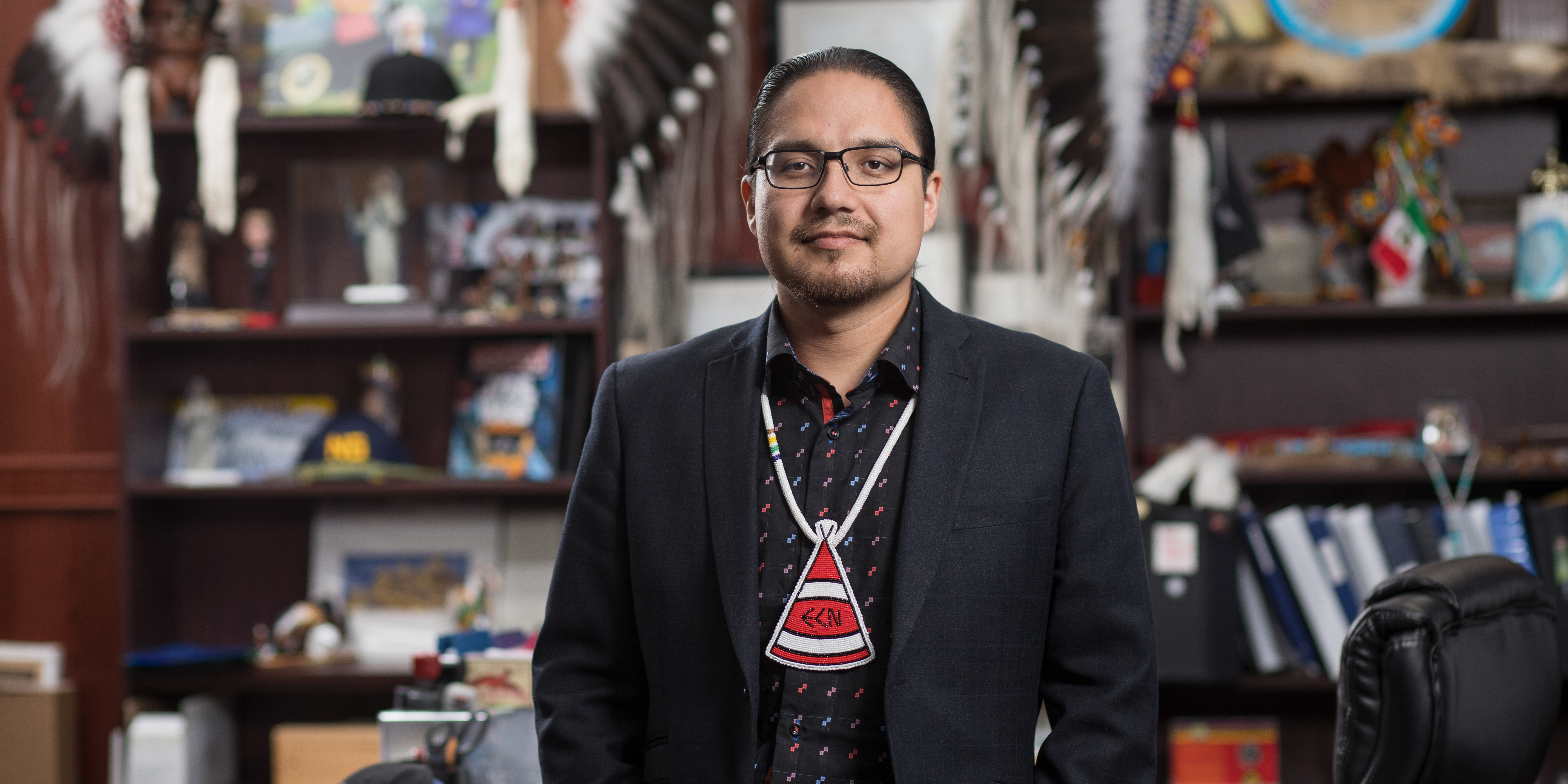My tagline ... was just "get stuff done." It’s actually music to my ears
Leadership is a big, complicated word. Depending on where you're at in your career, your perspective or your culture, the conversation around leadership and its definition is different.
In this episode, we talk with NAIT grad Billy Morin (Civil Engineering Technology ’11; Bachelor of Technology in Technology Management ’13) about his perspective on leadership after finishing his third term as chief of the Enoch Cree Nation. He explains his overall approach, what he did to get better at it, and how his education prepared him for the job.
Techlifetoday: How you would define leadership?
Billy Morin: My tagline since I've been chief was just "get stuff done." It’s actually music to my ears. It’s not just talking. It's about doing things that we can measure, see and touch. So wherever you are, if you're in a leadership role, it goes back to that [idea of] leave it better than you found it, and you have to be able to measure that.
How would you advise someone to go from talking to doing?
You know, in the last year since [the confirmation of gravesites at the residential school in] Kamloops, there has been a shift in Canada. It's kind of been like a resurgence of, “Hey, reconciliation isn’t going anywhere.”
A lot of the conversations I've had in the last year with non-Indigenous people, Albertans, even in private sector who have no real direct link to First Nations, they all want to do Indigenous inclusion now. And a lot of times, what they say to me is that they’re scared to say the wrong things.
I guess where I'm going with that is, as opposed to just talking, you know, take a risk.

You're often introduced as the millennial chief, or you're introduced as the youngest chief. Do you confront pushback from that, where people might think that you might not be ready or don't have enough experience?
Oh, yes. And quite frankly, it’s not from outside of my community, it's from inside. Some of the older generation was never comfortable with me being 28. And I'm 35 now, so I don't think I'm that young. I have four kids!
How would you work through that in terms of your own leadership style? And do you have any advice for people who are having a similar experience?
My advice [is] kill them with kindness. As a leader, you have to have control over your emotions. If you let your emotions get the best of you, that doesn't really turn out too well. I'm not saying ignore your emotions, I'm just saying you have to have a little bit of control over them in management positions.
And then the other thing I would say is just get results and prove them wrong.
How did your experience in the BTech program help you prepare to be chief?
The project management class, with Rhonda Betker and Joe Varughese, and the BTech program really changed my life. So before I took that class, I was in Civil Engineering Technology, and I was just that kid from the reservation on the west side of Edmonton that nobody really knew about.
"Get results and prove them wrong."
I knew I wanted more as a person back then, but it just felt like I couldn't get more out of school. I really wasn't giving it my all. I wasn't taking risks, and I wasn't talking to as many people as I should have. I took project management and I thought it would be scheduling and budgets and spreadsheets. And it was, but only 30% of the time.
The other 70% was us in class, reading the book Eight Habits of Highly Effective People. The book is OK, but it really forced us, with two awesome teachers in Rhonda and Joe, to actually talk to each other.
It was talking about the human aspects of leadership, talking and thinking about how to approach a situation, thinking with the goal in mind, thinking three or four or five steps ahead, talking about team aspects in terms of personality dynamics, and how to how to have really deep conversations with a project management team and a whole class.
I wasn't ready to be chief after taking that class but definitely I felt like I took five or six steps in a 20-step life experience aspect. I reflect back on my time at NAIT and that was a game changer.